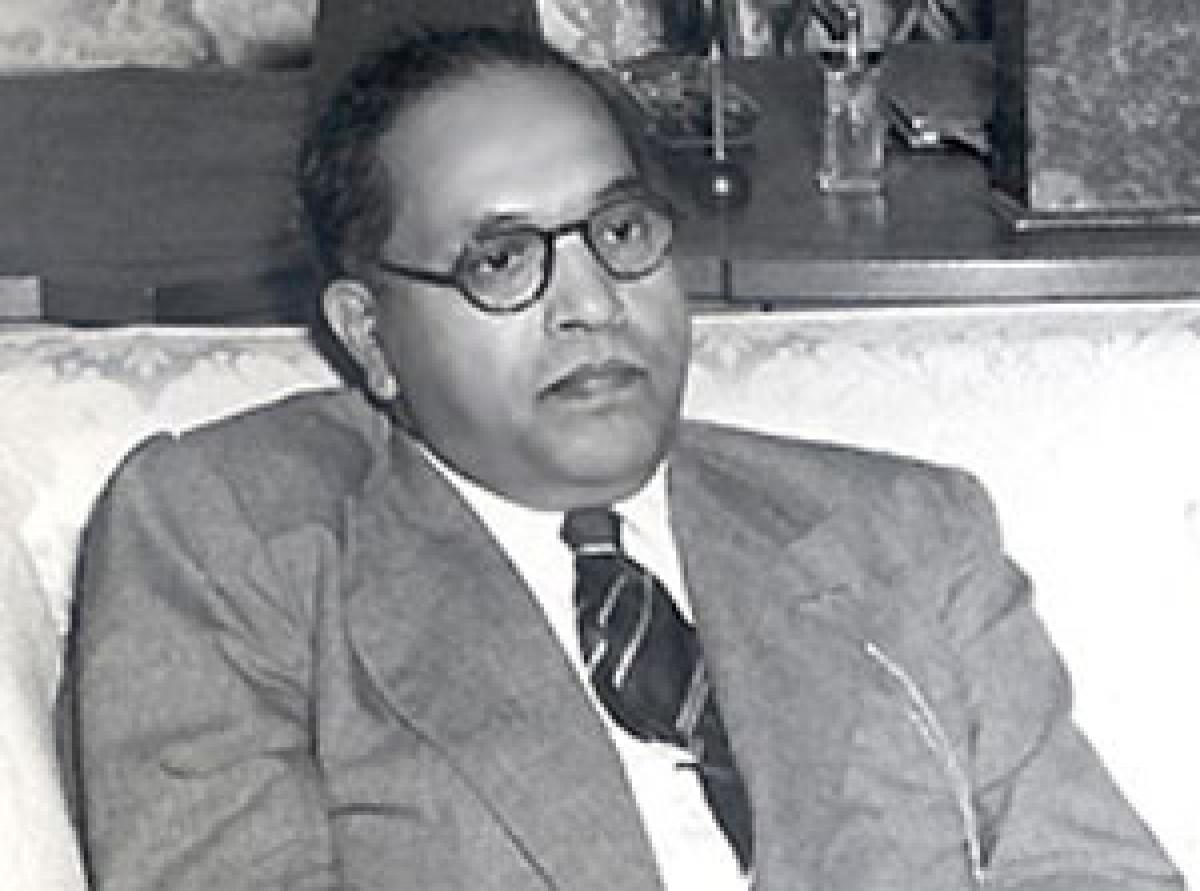Live
- World Liver Day 2024: Follow these easy lifestyle tips to cleanse and maintain a healthy liver
- Scholarships For Students
- What are the causes behind the increasing number of cancer cases
- Navigating Higher Education in US through scholarship
- Thrissur Pooram 2024: A Celebration of Tradition and Spirituality
- Akshaya Tritiya 2024: Date and Significance
- Kamada Ekadashi 2024: Date, Auspicious Timings And Significance
- Aamir Khan’s son Junaid wraps up filming for his second movie
- Vijay Sethupathi’s heartwarming gesture wins netizens’ hearts
- Excitement builds as Nabha Natesh and Priyadarshi paired up
Just In

The ruling and the opposition parties are at loggerheads over what constitutes secularism as per the Constitution of India. Unfortunately, the discussion in Parliament to commemorate the Constitution and its architect, Dr B R Ambedkar, was more political than on the Constitution, thus rendering a disservice to the Constitution itself.
 The ruling and the opposition parties are at loggerheads over what constitutes secularism as per the Constitution of India. Unfortunately, the discussion in Parliament to commemorate the Constitution and its architect, Dr B R Ambedkar, was more political than on the Constitution, thus rendering a disservice to the Constitution itself.
The ruling and the opposition parties are at loggerheads over what constitutes secularism as per the Constitution of India. Unfortunately, the discussion in Parliament to commemorate the Constitution and its architect, Dr B R Ambedkar, was more political than on the Constitution, thus rendering a disservice to the Constitution itself.
The critics of the term ‘secularism’ often refer to the fact that it was incorporated in the Preamble of the Indian Constitution through the 42nd Amendment only. But, the apex court itself declared in no uncertain terms that secularism is part of the basic structure of the Constitution.
As held by the Supreme Court in the famous Kesavananda Bharati case, even the Parliament has no right to amend the basic structure of the Constitution. As the Supreme Court noted in SR Bommai vs Union of India, 1994 case, “Notwithstanding the fact that the words 'Socialist' and 'Secular' were added in the Preamble of the Constitution in 1976 by the 42nd Amendment, the concept of Secularism was very much embedded in our constitutional philosophy …. By this amendment what was implicit was made explicit.”
India’s constitutional commitment to secularism emerged out of the freedom struggle. In 1908, Gandhiji wrote in Hind Swaraj: "India cannot cease to be one nation, because people belonging to different religions live in it. ... In no part of the world are one nationality and one religion synonymous terms; nor has it ever been so in India."
As Dr S Radhakrishnan, whose authority on religion is unassailable, rightly defined, “the secularism is embedded in our constitutional values. When India is said to be a secular State, it does not mean that that we exalt irreligion. Indian State will not identify itself with or be controlled by any particular religion.”
Our Constitution does not prohibit the practice of any religion either privately or publicly. Article 25 of the Constitution guarantees to all persons equally the freedom of conscience and the right to freely profess, practise and propagate religion.
The State is enjoined to accord equal treatment to all religions. But, these provisions of the Constitution by implication prohibit the establishment of a theocratic State and prevent the State from either identifying itself with or favouring any particular religion. The religious matters should, therefore, be regarded entirely as relating to the conscience of the individuals.
Justice Chinnappa Reddy, delivering his Ambedkar Memorial Lecture on 'Indian Constitution and Secularism' has observed that: "Indian constitutional secularism is not supportive of religion at all but has adopted what may be termed as permissive attitude towards religion out of respect for individual conscience and dignity.
There, even while recognising the right to profess and practise religion, etc., it has excluded all secular activities from the purview of religion and also of practices which are repugnant to public order, morality and health and are abhorrent to human rights and dignity, as embodied in the other fundamental rights guaranteed by the Constitution."
The Indian Constitution is both a legal and social document. It provides machinery for the governance of the country. It also contains the ideals expected by the nation. The political machinery created by the Constitution is a means to the achieving of this ideal. But, the parliament or political parties cannot ascribe to themselves the role of arbitrator and interpreter of the Constitution.

© 2024 Hyderabad Media House Limited/The Hans India. All rights reserved. Powered by hocalwire.com







